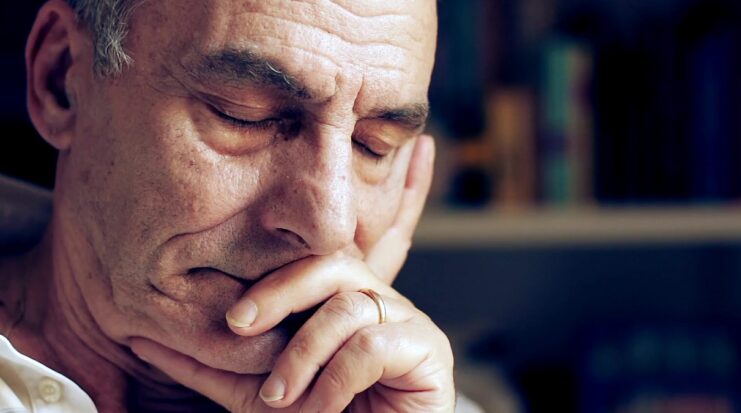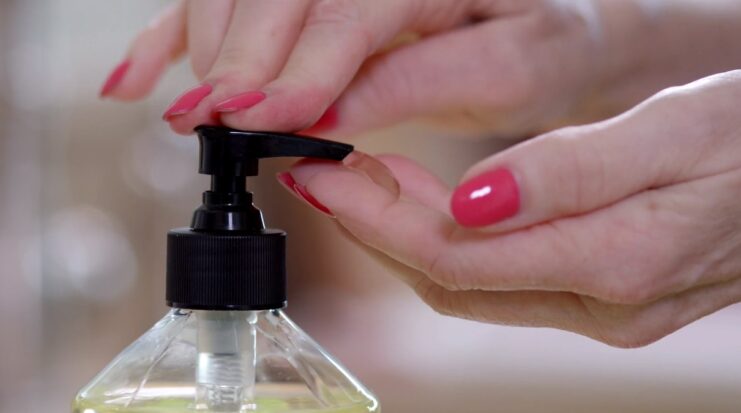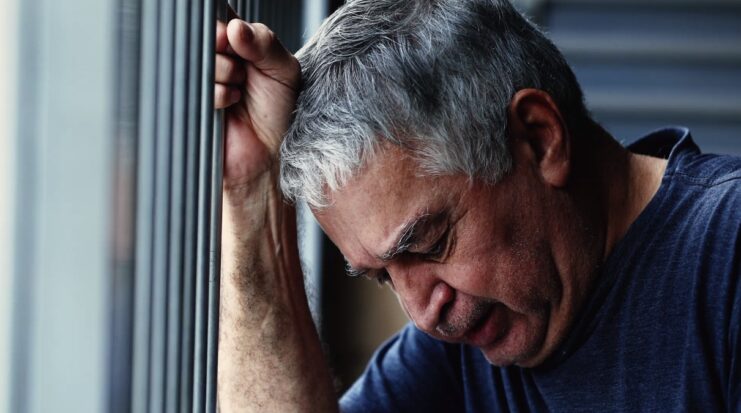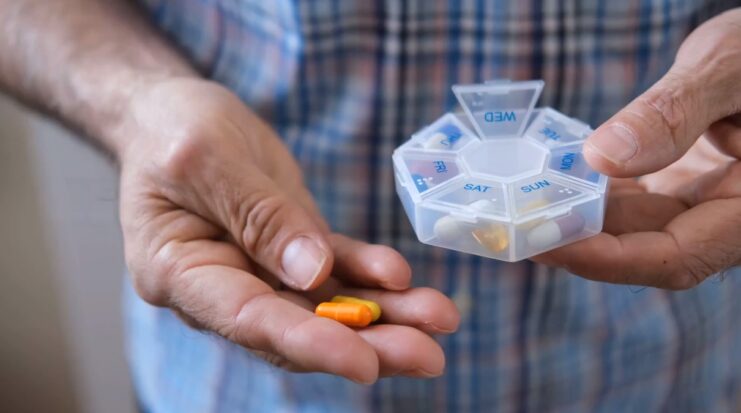As we venture into the complexity of the male reproductive system, it’s essential to note that age can significantly influence various aspects of its functioning. One area of interest that often elicits queries is ejaculation in older men. Let’s delve into this fascinating topic and answer the pressing question: “At what age does a man stop ejaculating?”.
Ejaculation: What Happens?
Before we dive into how aging affects it, it’s essential to understand the process of ejaculation.
A Brief Overview
Ejaculation occurs when semen is expelled from the penis, typically accompanying orgasm. This event is the result of a sequence of rapid-fire contractions in the pelvic muscles and vas deferens, sending sperm from the testicles, combining it with seminal fluid, and forcing it out through the penis.
Stages
There are two stages to ejaculation – emission and expulsion. The emission stage is when sperm move from the testes and mix with other fluids to form semen. The expulsion stage is the actual ejaculation, where the muscles at the base of the penis contract.
Factors Influencing Ejaculation
Several factors influence it, including psychological factors like arousal and physical factors like prostate health. Interestingly, ejaculation and orgasm can occur separately, although they usually happen simultaneously.
Importance in Sexual Health
Ejaculation plays a critical role in male sexual health, not just in terms of reproduction but also for pleasure and satisfaction. Problems with it can lead to sexual frustration and can sometimes indicate more serious underlying health issues.
Aging and Sexual Function: What Changes?

As men age, changes in sexual function are normal. However, these changes can often be misunderstood or alarming if not properly explained.
General Effects of Aging on Sexual Function
Aging affects various aspects of sexual function in men. For example, the erectile function may decrease, meaning it might take longer to achieve an erection, and they may not be as firm or large as they once were. Additionally, the sensation of orgasm can be less intense, and the volume of ejaculation can decrease.
Aging and Testosterone Levels
Testosterone, the male sex hormone, typically decreases with age, leading to changes in sexual function. Low testosterone can affect sexual desire, erections, and, ultimately, ejaculation.
Ejaculatory Changes with Age
Men might also experience changes in ejaculation as they age. The force of it may decrease, and the amount of semen ejaculated might reduce. Notably, the refractory period, the time it takes to achieve another erection after ejaculating, lengthens.
Aging and Prostate Health
Prostate health is vital. With age, the prostate can enlarge, a condition known as benign prostatic hyperplasia (BPH). This condition can affect ejaculation and cause other urinary or even STD symptoms.
Erectile Dysfunction (ED) Influence

Erectile Dysfunction is a common condition in aging men that can affect ejaculation. It’s important to understand how it influences the ejaculatory process.
Erectile Dysfunction (ED) Explained
Erectile dysfunction is the inability to get or maintain an erection firm enough for sexual intercourse. It’s a common issue, especially in older men, and can have psychological and physical causes.
Erectile Dysfunction and Aging
While aging isn’t the sole cause of erectile dysfunction, it is a significant risk factor. Conditions associated with aging, like heart disease, diabetes, and obesity, can all contribute to erectile dysfunction.
Impact of ED
Erectile dysfunction can significantly affect ejaculation. While it’s possible to ejaculate without a full erection, the experience can be less satisfying and might lead to less ejaculate.
Treatment of ED and Its Effects on Ejaculation
Treatments for erectile dysfunction, such as medications, penile implants, and psychotherapy, can help improve ejaculation. However, some treatments may potentially alter the ejaculatory process.
Retrograde Ejaculation: An Overlooked Issue

This is the issue where semen enters the bladder instead of exiting the penis, which can occur in older men.
Causes
Several factors can cause this condition, including certain medications, surgery in the pelvic area, or medical conditions like diabetes and multiple sclerosis. Aging can also contribute to the likelihood of this condition.
Effects
Men with retrograde ejaculation might notice a decrease in the volume of ejaculation. However, the condition doesn’t cause pain or discomfort during sex and doesn’t interfere with sexual pleasure.
Treatment
Treatment is typically only recommended for those seeking fertility. Options include medications to keep the bladder neck muscle contracted during ejaculation or procedures to retrieve sperm from the bladder.
Lifestyle Choices and Their Impact

While we’ve discussed medical factors that influence ejaculation, it’s important to look at how our lifestyle choices can impact it as well.
Healthy Diet
Maintaining a balanced diet rich in fruits, vegetables, lean proteins, and whole grains can promote overall health, including sexual health. Some research suggests that foods rich in zinc, like oysters and pumpkin seeds, may boost testosterone levels and improve sperm quality.
Physical Activity and Sexual Health
Regular exercise is beneficial for sexual health. It helps increase blood flow throughout the body, including to the genitals, promoting healthy sexual function. Exercise can also boost mood and energy, contributing to improved sexual desire and performance.
Smoking and Alcohol

Smoking and excessive alcohol consumption can have adverse effects on sexual health. Smoking restricts blood flow and can lead to erectile dysfunction, affecting ejaculation. Meanwhile, alcohol in excess can cause temporary or long-term sexual dysfunction.
Stress Management and Sexual Function
High stress levels can impact sexual function in general. Stress can cause hormonal changes and lead to conditions such as erectile dysfunction or premature ejaculation. Techniques like mindfulness, yoga, and other stress management practices can help maintain healthy sexual function.
Male Menopause: Fact or Fiction?

Often, we hear about ‘male menopause’ – but is it a real phenomenon, and how does it relate to ejaculation?
What ‘Male Menopause’ Actually Is
‘Male menopause,’ more accurately referred to as andropause, represents a period in a man’s life where there is a gradual decline in testosterone levels. Unlike female menopause, this change is subtle and doesn’t affect all men the same way.
Testosterone Decline
The gradual decline in testosterone can lead to changes in sexual function, including ejaculation. Lower testosterone levels can lead to decreased sexual desire and arousal, which may indirectly influence ejaculation.
Andropause and Other Symptoms
Andropause can also lead to other symptoms, such as fatigue, depression, irritability, and reduced muscle mass. If you’re experiencing these symptoms, it’s essential to speak with your healthcare provider for a comprehensive evaluation.
Treating Andropause Symptoms
Symptoms related to andropause can often be managed with lifestyle modifications and, in some cases, testosterone replacement therapy. Any treatment should be discussed with your healthcare provider to consider potential benefits and risks.
The Role of Medication

Medications, both prescription and over-the-counter, can significantly impact sexual function, including ejaculation.
Antidepressants
Certain types of antidepressants, particularly selective serotonin reuptake inhibitors (SSRIs), can cause problems with ejaculation. They can lead to delayed ejaculation or even anejaculation, where a man can’t ejaculate.
Blood Pressure Medications and Sexual Function
Blood pressure medications, especially diuretics and beta blockers, can affect sexual function. They can cause erectile dysfunction, decreased sexual desire, and ejaculation problems.
Prostate Medications
Medications used to treat prostate conditions, particularly BPH, can impact ejaculation. Some of these drugs may lead to retrograde ejaculation or decreased ejaculate volume.
Medication Adjustments for Sexual Health
If you suspect that your medication is affecting your sexual function, it’s crucial to speak with your healthcare provider. Never stop taking prescribed medication without first consulting your doctor. Adjustments or alternatives may be available that can alleviate these side effects.
Final Words
With a better understanding of ejaculation and the effects of aging, men can approach their advancing years with confidence, knowing what to expect and when to seek help. As with many health matters, knowledge is power, and in this case, it’s also a pathway to a fulfilling sexual life at any age.












